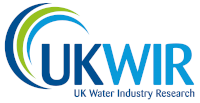UKWIR embarks on new project cycle
13/11/2023
The 21 research projects fall under UKWIR’s 11 Big Questions (BQs). UKWIR developed the BQs to address the industry’s key challenges, identified through extensive consultation. Topics addressed in the BQs include delivering sustainable wastewater services, zero uncontrolled sewer discharges, achieving zero customers in water poverty, as well as zero leakage and zero interruptions to supply.
UKWIR helps water companies address pressing issues by funding research projects that develop new understanding, information, methods, and techniques to improve the water industry’s efficiency, effectiveness, sustainability, and resilience.
“UKWIR is a valuable resource for water companies in the UK and Ireland. It helps them to stay ahead of the curve, drive improvements for the environment and customers, and meet the challenges of the 21st century,” said Steve Kaye, UKWIR chief executive.
The projects are informed by the input of water companies, academia, and other stakeholders to ensure the research is relevant to the needs of the industry and that
the results can be effectively implemented. They will deliver significant financial,
environmental and societal benefits for the environment, water sector and customers.
Projects in this Cycle include:
- National Framework for water resources - Environmental Destination investigation framework
- Fate & disposal of persistent and emerging contaminants captured during potable water treatment
- A review of the success of previous mains renewal methods and an overview of new techniques
- Understanding water infrastructure risks - major bursts, traffic volumes and the condition of road infrastructure
- Feasibility study on polluter pays monitoring and extended producer responsibility
- Optimising the Selection of Pipes for Renewal to Reduce Leakage
- Response to National Bioresources Strategy - prioritisation of opportunities
- Understanding the possibilities of new approaches and standards from a data rich sewer network
- FOG Charging - Should foodservice wastewater charges reflect FOG content?
- Use of models to determine the size and most likely location of CSL
- Chemical free water treatment & Alternatives to traditional clarification processes
- A holistic review of the impact of reducing the operation of sewer overflows on organic load to works, sludge production, carbon and GHG emissions
- A holistic review of the impact of reducing the operation of sewer overflows on organic load to works, sludge production, carbon and GHG emissions.
- What process options are available for treatment of hazardous chemicals at point of entry to sewer?
- Drainage & wastewater management plan drawing conclusions and defining best practice from cycle 1 delivery.
- Common definition and calculation of Asset Health
- Optimising and balancing short-term operational interventions with long-term capital maintenance to improve water supply interruptions
- Sustainable GAC regeneration
- Detection and management of ingress into tanks
- How will climate change affect raw water quality
- Circular economy - water treatment sludges
- Criticality and value of data in supporting asset management decision making
